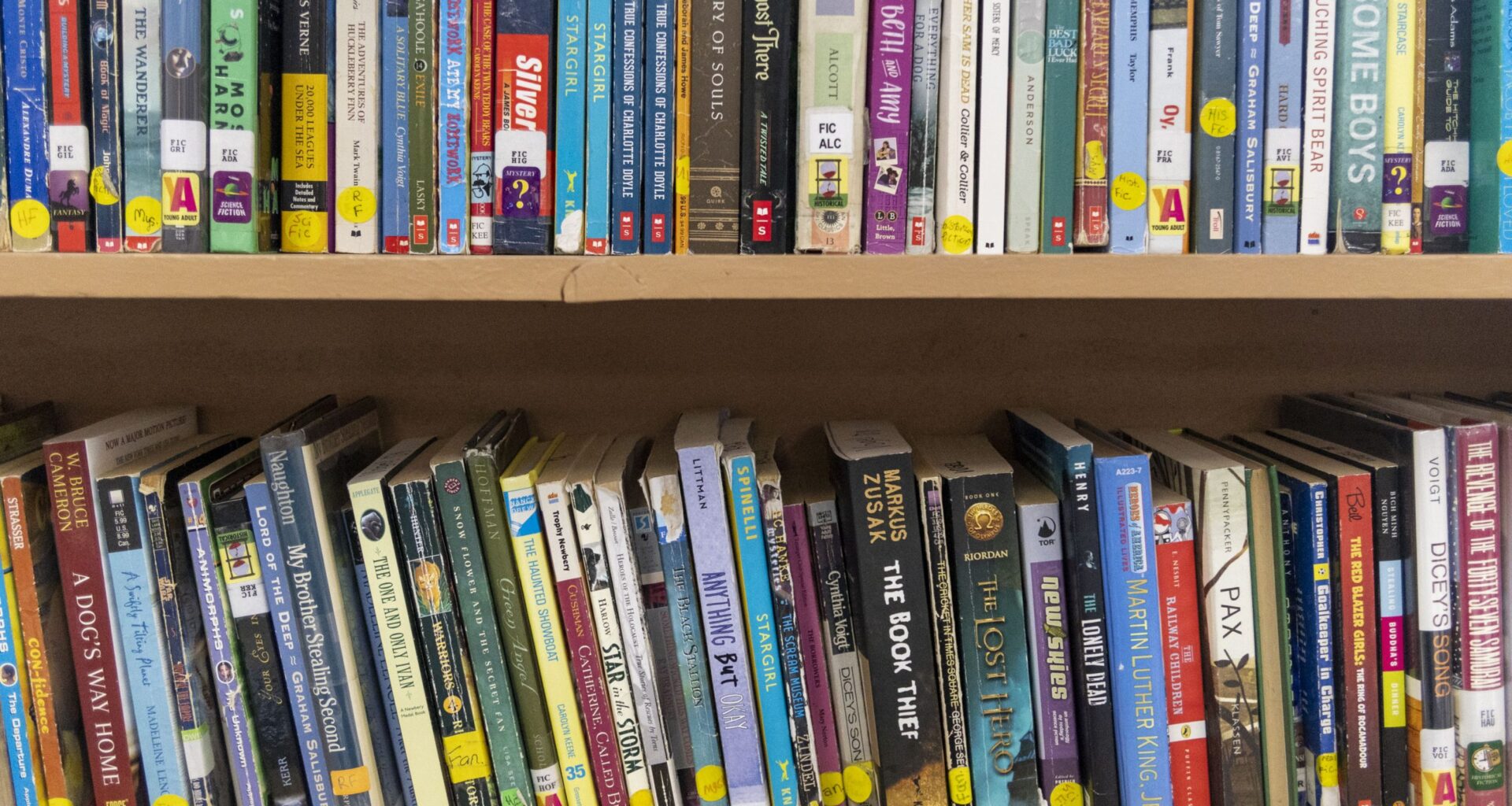LANSING – Some local libraries in the state are taking measures to prevent AI-generated books from making it into their collections.
Books generated by artificial intelligence can take many forms, from children’s picture books with sloppy illustrations and nonsensical text to nonfiction books with completely false information, said Stef Reed, the director of Flat River Community Library in Greenville.
When librarians look to acquire new books, they usually rely on vetted resources where they can review feedback and reviews.
Some “red flags” they look out for include books with no credible reviews or an author who’s publishing a suspiciously high number of books in a short period, she said.
“If we can’t find credible reviews for, say, a picture book or other children’s materials like that, then we aren’t going to buy it in the first place,” Reed said.
 Stef Reed is the director of Flat River Community Library in Greenville. Credit: Montcalm Area Reading Council
Stef Reed is the director of Flat River Community Library in Greenville. Credit: Montcalm Area Reading Council
As for content, librarians can pick up on indicators that a book is AI-generated, as subtle as the way the text appears on the page, she said.
“It has a sort of inhuman feel to it,” Reed said. “It’s making an attempt to sound more humanistic but actually ends up sounding more robotic when you’re viewing it.”
There are a number of ethical arguments against AI-generated books, she said.
For example, critics question whether AI is plagiarizing the work of human creators, suggesting it diminishes the quality of language.
They also question the intent of people using AI to produce books – asserting they’re not actually interested in creating art and are, instead, looking to make a quick profit, Reed said.
“It divorces us from what natural language feels like,” she said. “It disguises itself as natural language but has that slightly inhuman quality that can’t really be taught to AI.”
Librarians at the East Lansing Public Library have spotted multiple AI-generated books when looking to add to their collection.
They’ve mostly been children’s books, said Chrissie Evaskis-Garrett, the interim director and former collections team leader.
The stories don’t make any sense, and the artwork has a particular look to it, she said.
AI books are not integrated into collections for reasons beyond the ethical arguments. Their quality is poor enough that they would be passed up regardless of whether the author was a human or a machine, she said.
“A lot of times it’s incoherent, it’s inaccurate and frankly, for lack of a better word, it’s garbage,” Evaskis-Garrett said.
Librarians say that AI-generated nonfiction books often cite made-up sources and present false “facts,” she said.
Evaskis-Garrett said another reason why AI books don’t make the cut is that they don’t serve the interests of the people going to the library.
There are frameworks, policies and procedures librarians follow to stock accurate, engaging materials that community members will read, she said.
“There are a lot of fail safes in place before the books get to the shelves,”
she said.
Flat River’s Reed said it’s important to keep in mind that librarians follow strict policies when selecting materials, and a book won’t make it onto shelves without being carefully vetted.
“We librarians don’t ever put anything on the shelf haphazardly without thinking through whether it’s appropriate to be there,” she said.
Related
Thank you to our Education Watch sponsors
Education Watch is made possible by generous financial support from our sponsors. Please visit the About page for more information and to subscribe to Education Watch. Interested in becoming a sponsor? Contact Emma Carr.
Republish This Story

